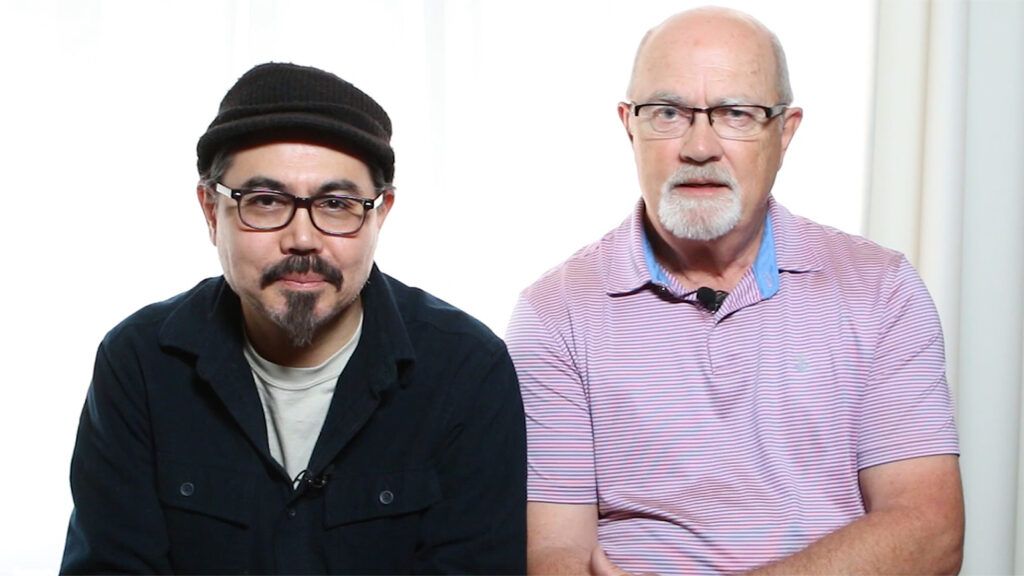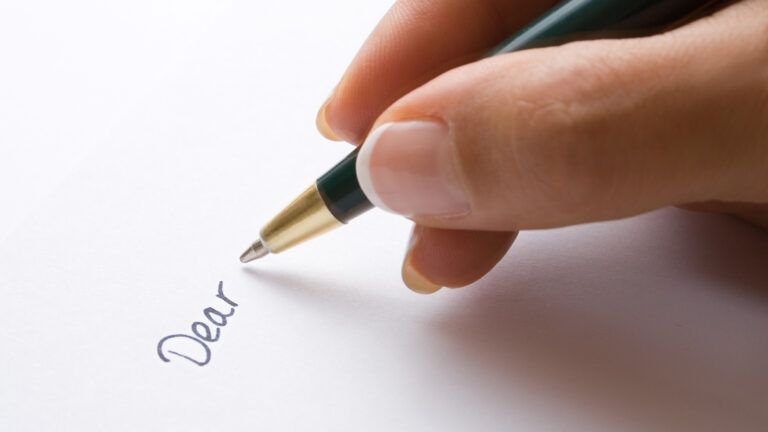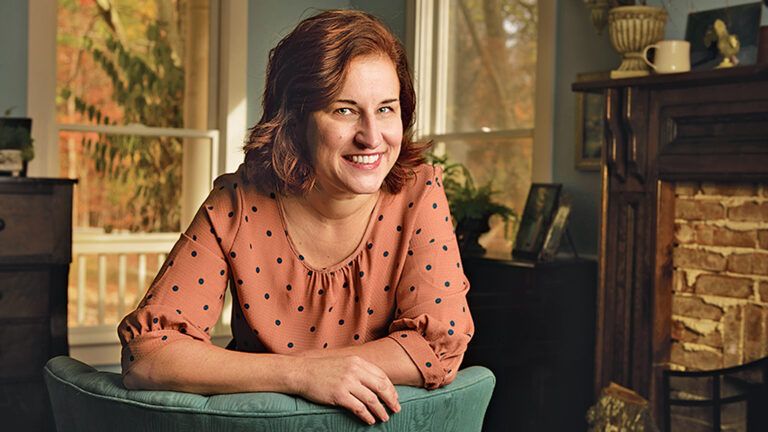Bob Nore: Hi, Guideposts. I’m Bob Nore, and this is my son, Son Vo. I first met Son Vo at the age of 46, when I found out he was my son. This was through ancestry.com, where his wife got him a DNA kit and my wife got me a DNA kit. We live 3000 miles apart. What are the chances of both of us taking the DNA test and finding out that we have a father-son relationship?
Son Vo: Well, when I got that email I was actually…I thought I was being punked, in a sense. You know, as I absorbed it more, I finally realized, Yeah, OK, this is my father. I guess I should probably reply and reach out, so I did. And then later on, he reached out.
Bob: Well, I was stunned. I thought, I really don’t know if he wants to have a father, or if he even wants to know anything about me. So I thought I would wait until he made the first move, and then I would respond.
Son: I think it was on our first phone call, right? We’d started talking, and then I told him I’m a musician. I think you asked what I played. And then I said, “I play bass.” And then he said, hey, I play bass too. I think that just kind of just opened up the conversation. I believe that’s when you said, right, that “He must be my son.” Or something to that effect. There you have it, you know? It’s confirmed.
Bob: Well, I was convinced from the beginning that Son was my son. The DNA just doesn’t lie. The time that I was in Vietnam was right. So there was no doubt in my mind that he was my son. And I wanted a relationship, if he would have it.
Son: Well, you got it. [laughs]
Bob: Yeah.
Son: To me, it was—I mean, it was intense. You know, it’s my dad. I don’t know what a dad is until that very moment; I never had that really. So it was it was intense. And it was obviously just an introductory phone call, so we were really just kind of getting to know each other. Kind of just feeling ourselves out. And what struck me was we talk alike. Our cadence, our pauses, how we, I don’t know—it was uncanny.
Bob: It really hit me, and I know I broke down and cried for a while.
Son: I had the phone call. It could’ve been like, a week? Two weeks later? I went to a gig on a Sunday, and as I was driving home, it all just hit me. The floodgates opened. And I was just bawling as I’m driving, it’s steaming up my glasses, and I missed my turn. I was, like, “Where am I? I don’t even know where I am. Oh my God, I found my dad.”
We went there—I think it was last year, right? A little over a year ago?
Bob: The year before.
Son: Yeah, we actually did go up there.
Bob: We did walk through the streets of Saigon, just trying to reconnect with the places that I’d been there.
Son: Because that was the first time that I’d been back since I left as a child. So some of the streets, like, it just—you know, it’s those memories. The smells, the visuals. You’re, like, “Oh my God, I do remember; this is how it was.” And it just goes right back to being two or three years old. It was really interesting. And it was cool. It was cool that we did that together. That was really cool.
It’s quite miraculous, and just the confluence of the whole idea of technology and DNA being able to help.
Bob: And I think that time there were not too many people that had taken the DNA test, so it was really strange that they linked us.
Son: Yeah. I mean, to tell you the truth, I had actually lost faith in finding my father. I had the wrong name, because my mom gave me a name that she thought was my father. So I’d been looking under that name. And it just got to that point where I said, “You know what? I don’t think this is going to happen.” And so I just kind of said, “You know what? I’m going to just have to let go.”
It’s interesting that when you lose faith, but if you also let go, all of a sudden the gates open and in comes a miracle.
Bob and Son: [singing] When I want you in my arms,
When I want you and all your charms,
Whenever I want you, all I have to do
Is dream—dream, dream, dream.
When I feel blue…[fade out]




